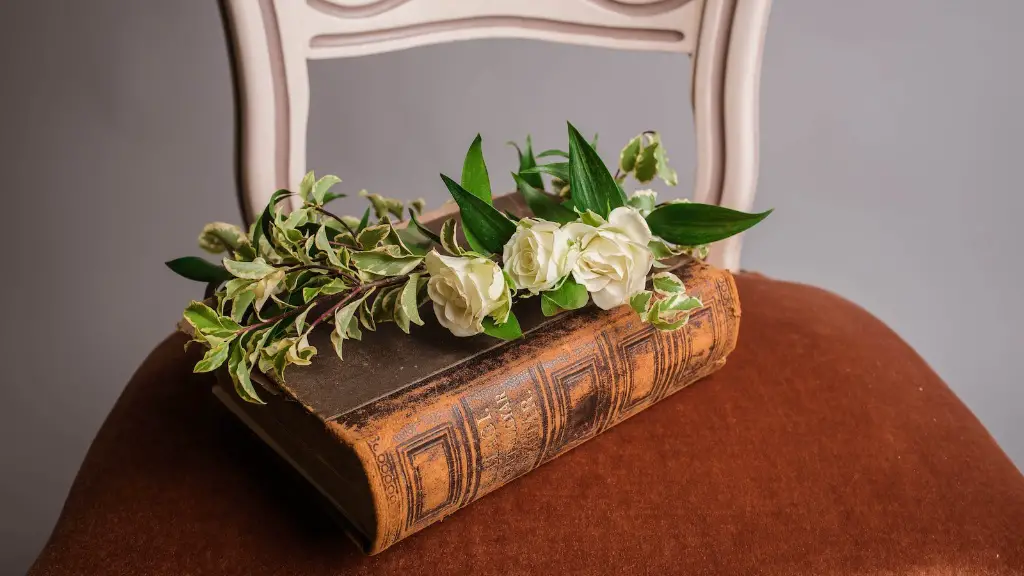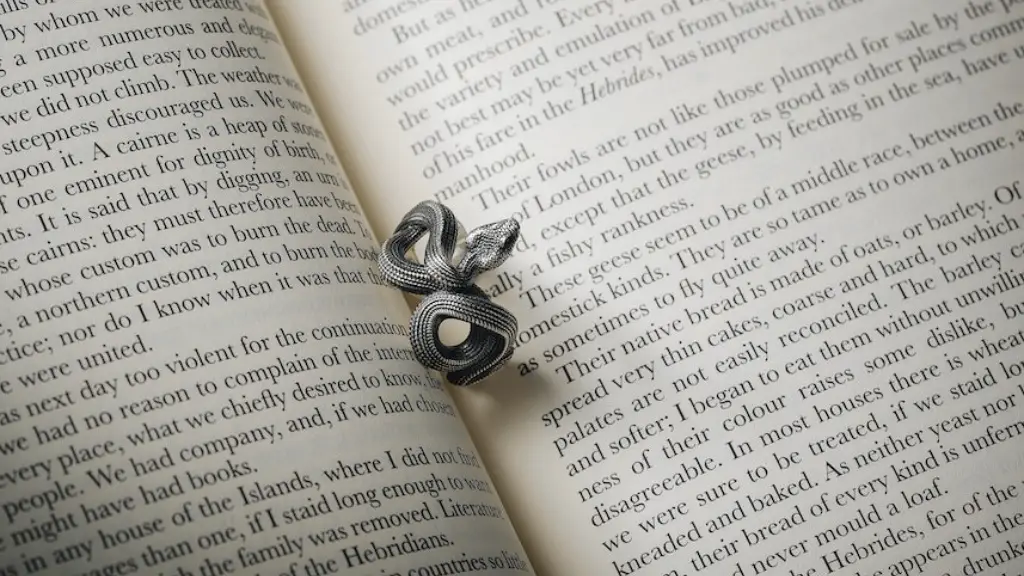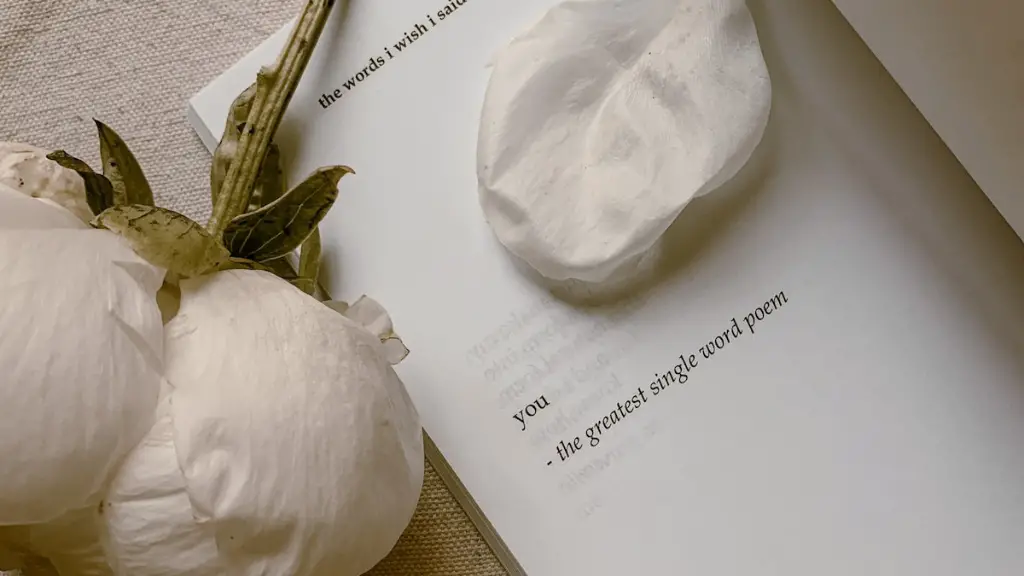The world of literature has a rich and diverse history, with a number of different genres and styles of writing. Two of the most popular and widely known types of poetry are epic and lyric. Though both are forms of poetry, there are a number of distinct differences between the two that set them apart. Epic poetry tells stories about great heroes and their feats of bravery, while lyric poetry is designed to be intimate and personal.
Epic poetry is a form of storytelling — often in the form of multiple stories that unfold together — that is usually told from the point of view of a single character. The narrative will often revolve around a single hero, or a group of protagonists, that go on a journey and tackle incredible feats on their way. Epic stories feature gods, goddesses and other mythological creatures, and many times history is woven into the story. Often, epic poems are rooted in a nation’s culture and are written to celebrate great heroes of the past. Popular examples of epic poetry include Virgil’s “The Aeneid” and Homer’s “The Iliad” and “The Odyssey.”
In contrast to epic poetry, lyric poetry is a much more personal and intimate style of writing. These poems are often subjective and emotional, with language that is often musical in nature. Lyric poetry is mainly designed to express personal feelings and emotions, and unlike epic poetry, does not necessarily tell a story or feature a hero or protagonist. Instead, lyric poems are often short, with little in the way of plot or setting. Word choice and imagery are more important components of lyric poetry, as well as the feelings and ideas they portray. Some popular examples of lyric poetry include Shakespeare’s sonnets, Christina Rossetti’s “Love’s Confession” and William Blake’s “The Tiger.”
One of the main differences between epic and lyric poetry is their purpose. Epic poems are written to celebrate great heroes and their feats, as well as to explore the human condition within the context of a larger story. In contrast, lyric poetry is written to allow the poet to express their own personal thoughts and feelings, without the need for a larger narrative. This difference in purpose means that epic and lyric poems will often differ in structure and subject matter. Epic poems tend to be longer and feature complex language and imagery, while lyric poems are often much shorter and focus mainly on inner thoughts and emotions.
Another key difference between these two types of poetry is their language. Epic poems feature language that is much more intricate and flowery than lyric poems, with words and phrases that are designed to bring out the beauty and complexity of the narrative. On the other hand, lyric poems are much more conversational in nature, and often feature shorter, simpler words and phrases to capture a feeling or emotion. Epic and lyric poetry also differ in the way that they are written — epic poems are often structured in a very organized and consistent way, while lyrics will often have a more free and improvisational-style structure.
Finally, epic and lyric poetry often differ in the way they are experienced. Epic poems are often complex and require more effort and attention to understand. In contrast, lyric poetry can be easily enjoyed and understood by anyone, without the need for deep analysis or study. Epic poems often explore themes of heroism and morality, while lyric poems often evoke feelings of intensity, love and other personal emotions. Both types of poetry can be extremely powerful and emotionally moving, and both can be used to tell different types of stories.
Analyzing the Origin of Epic and Lyric Poetry
The origins and influences of epic and lyric poetry are centuries old and varied. Epic poetry is thought to have originated in Ancient Greece, where stories of heroic figures such as Achilles and Odysseus were often told and celebrated. Epic poetry slowly shifted and changed over centuries, as different cultures and regions from around the world embraced these stories, adding their own unique spin on the genre. Lyric poetry, on the other hand, is thought to have originated in Europe and the Middle East — with some of the earliest examples appearing in Ancient Greek and Latin texts.
Since the Middle Ages, many writers and poets have blended epic and lyric poetry together in their work. Writers such as Geoffrey Chaucer and Dante Alighieri were known for their combination of heroic deeds and intense emotions in their poetry, and this style of writing continues today. Many modern poets are inspired by the combination of epic and lyric elements, creating a hybrid style that is both powerful and emotionally moving.
Exploring Examples of Epic and Lyric Poetry
The world of literature is filled with many examples of epic and lyric poetry. Some epic poems include “Beowulf,” “The Illiad,” and “The Odyssey.” Lyric poetry examples include “The Rime Of the Ancient Mariner” by Samuel Taylor Coleridge and “The Flea” by John Donne. Both of these poems feature powerful language and themes of heroism, love, and fate. Although these two types of poetry differ in style and purpose, both can be used to tell beautiful and powerful stories.
Analyzing the Contemporary Meaning of Epic and Lyric Poetry
21st-century literature is influenced by both epic and lyric poetry, as contemporary authors explore themes of heroism, fate and the human condition. Today’s authors are increasingly inspired by epic and lyric poetry, often finding ways to blend elements of the two genres together to create powerful stories and expressions of emotion. As people continue to write and read more epic and lyric poetry, these genres will continue to be an important part of literature as they remain both relevant and inspirational.
Exploring the Cultural Significance of Epic and Lyric Poetry
Epic and lyric poetry both have a great cultural significance in many parts of the world. Epic poetry is often tied to a nation’s history and culture, with stories (both real and fictional) of heroes and their deeds being celebrated and remembered. Lyric poetry, on the other hand, is often used to express individual thoughts and feelings, and to explore themes of love, fate and the human condition. In both cases, these types of poems often capture the essence of a culture and its people, and can be used as a way to pass down stories from generation to generation.
Understanding the Impact of Epic and Lyric Poetry on Modern Literature
The impact of epic and lyric poetry on modern literature is immense. These two types of poetry often feature themes of heroism and morality, as well as intense emotions and powerful language. As a result, many modern authors are inspired by both epic and lyric poetry when creating characters and stories — often finding ways to blend elements of both genres to create unique narratives. By exploring a multitude of ideas while utilizing intricate language and imagery, epic and lyric poetry continue to be one of the main sources of inspiration for modern authors and readers alike.



